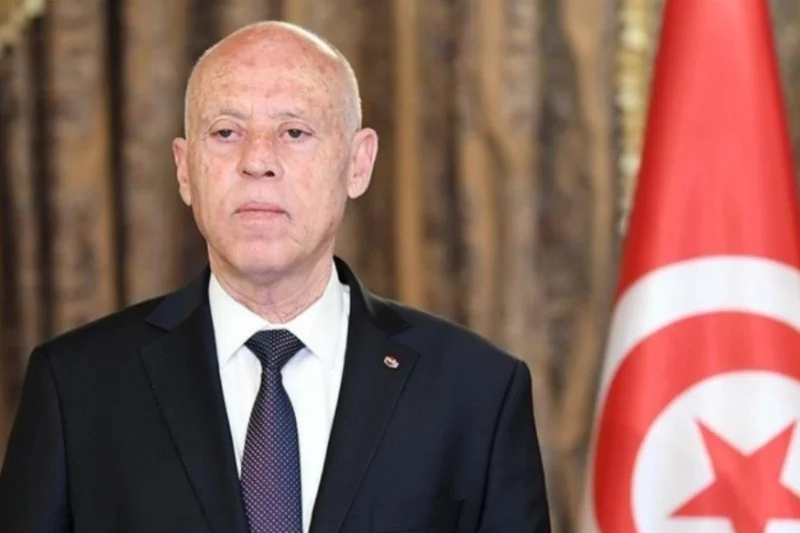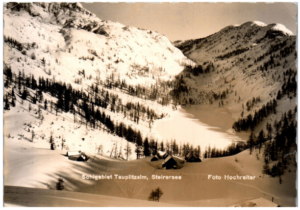President Saied of Tunisia ruins relations with Morocco as “Algeria’s Puppet”

Over the past two years, Moroccan officials have tolerated Tunisia’s “positive neutrality” in the Western Sahara conflict despite some early signs that Saied is selling out to the Algerian army.

Photo shows King Mohammed VI of Morocco and Tunisian President Kais Saied
Washington DC – Over the past year, Tunisian President Kais Saied has accelerated his country’s anti-Morocco provocations, presenting Rabat with a diplomatic dilemma. Even if the Moroccans realize that Saied is a passing phenomenon and should not be taken seriously, they remain disappointed by the timid response of Tunisian civil society to the antagonistic positions of Tunis. While Saied embraces authoritarianism, the Moroccan people can only watch and pray for the return of a stable Tunisia.
Saied’s decision to meet with the Algerian-backed Polisario militia leader is a betrayal of the longstanding friendly ties between the two countries. Over the past two years, Moroccan officials have tolerated Tunisia’s “positive neutrality” in the Western Sahara conflict despite some early signs that Saied is selling out to the Algerian army.
It is not a secret that Algeria has initiated economic inducements, including security guarantees, and economic and energy aid to force a weak Saied to fully embrace the Polisario and adopt its thesis in the Western Sahara conflict. Unfortunately, the Tunisian leader has demonstrated that immediate economic and energy needs prevail over historical diplomatic friendships. He sold the integrity, safety, and dignity of the Tunisians to the Algerian military for gas and a handful of dollars.
Recognizing the importance of maintaining the balance of power in the Maghreb, Morocco has never exerted pressure on Tunisia to take sides in the Sahara conflict. While this approach may have been judicious, it does not serve the current interests of the Kingdom. The “Saied experience” has taught Moroccans that niceties and understanding do not pay a diplomatic dividend when your foes are ready to overthrow governments that do not support their foreign policy.
The time has come for Morocco to be more assertive and less “thoughtful” in the Maghreb. This means it should give up strengthening its partnership with wavering “friends” and continue to engage nations that are clear partners. Rabat weaning itself away from France’s sphere should be just the beginning of this new era.
Rabat recognizes that the Ukraine war has prompted Algeria as a major player in the region, thus the kingdom has re-enforced the fundamental and enduring aspects of its new foreign policy that centers on the Tel Aviv-Washington axis.
The Moroccan public understands that the precarious political and economic situation in Tunisia has made its diplomacy a hostage to the Algerian diktats. However, Saied’s absolute capitulation and his blind execution of Algerian demands made Tunisia irrelevant and weak. The Algerian president never misses a chance to humiliate Tunisia and remind the Tunisians of his country’s dominance over their economy and domestic politics.
Saied has removed Tunisia from the diplomatic map thanks to his unconditional support for the failed foreign policy of Algerian President Tebboune. Today, Algeria and Tunisia are isolated and flouted in the international arena. The Algeria-Tunisia- Paris trio is a failed partnership that has collapsed with the weight of its political dysfunctionalism.
While Moroccans recognize the effect of Algeria’s intense bullying, they reject Saied’s arrogance and indifference to Tunisia’s long-term interest in the region. Even if Tunisia’s tilt toward Algeria has no impact on the ongoing conflicts in North Africa, it should give Morocco pause to formulate a new diplomatic approach with a post-Saied government.
Unlike the ruling military junta in Algeria, the Moroccan monarchy has never taken advantage of Tunisia’s weaknesses over the last fifty years. When Gaddafi’s Libya attacked the Tunisian city of Gafsa in 1980, Morocco stood militarily and diplomatically with Tunisia. While Ghaddafi and Algeria were plotting to control Tunis, the late King Hassan II offered unequivocal and unconditional support to President Bourguiba at the time.
In retrospect, Morocco should have asked Bourguiba for a stronger stand on the Sahara conflict when Libyans were plotting against him and the Algerians in the middle of a civil war. That is a lesson learned.
In its dealings with weak governments in the Maghreb, Morocco should adopt the same assertive diplomatic attitude it uses in Europe. Caution and moderation do not work with fragile rulers like Saied.
Rabat does not need to be aggressive, but the response to Saied’s unhinged behavior must be unambiguous and resounding. His hostile positions have shown that it is high time to take a hard look at bilateral relations.
It is incomprehensible to hear in Tunisian circles that Morocco has profited from Tunisia’s problems by luring away foreign investors when it is their President’s adverse political policies that pushed companies to leave for more desirable locations. As long as Algeria’s man Saied remains in charge, a comprehensive Moroccan-Tunisian reconciliation will be hard to attain.
Source: MWN





